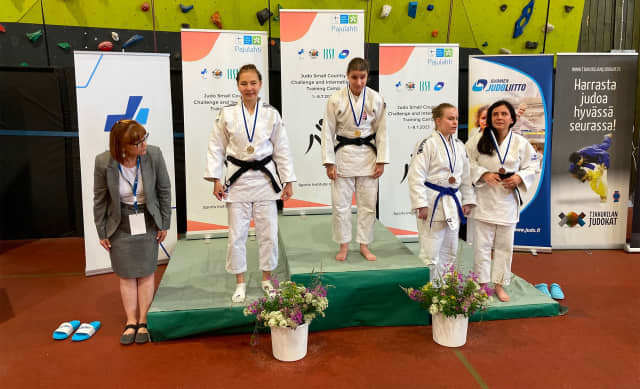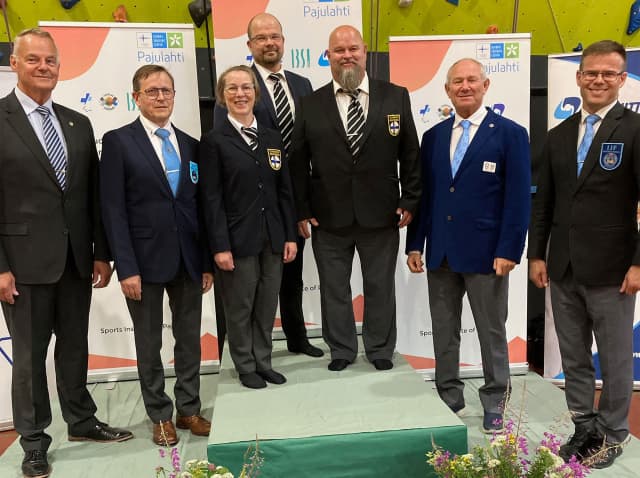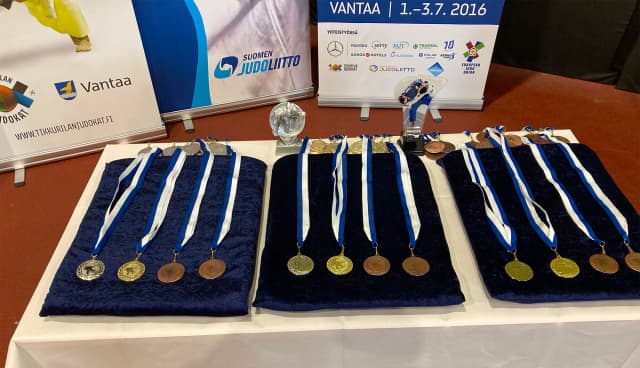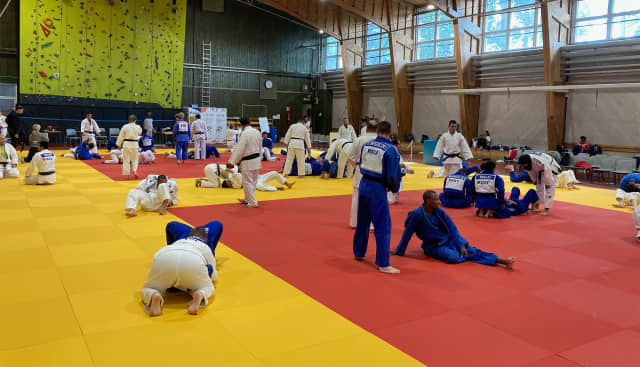This system is much fairer than the previous one and gives many more opportunities for the visually impaired to participate and achieve medals at the Paralympics.
Since the decision was taken and implemented, the IBSA (International Blind Sport Federation) Judo Committee has noticed that a lot of new competitors have taken part. With so many new judoka arriving on the IBSA scene there is now an even broader range of skill and ability among the athletes and that’s why a new idea was born, a real innovation. There was a need to organise an event, to include both competition and training camp, that supports beginners and developing competitors. The goal is for these competitors to catch up with the elite level as soon as possible and this can only be achieved with co-operation and special tools.
This IBSA judo innovation primarily addresses the small judo nations. Participation in the event was for those eligible through a set of criteria written to truly embrace the occasion as a development event for those who need it most, i.e. a competitor who has a Paralympic or World Championship medal or points, or an athlete from a strong judo nation cannot participate.
Article signed by János Tardos, IBSA Judo chairperson, about the Small Country Challenge competition, followed by a training camp, that took place in Finland these past few days.#IBSA #IBSAJudo
— IBSA (@IBSABlindSports) July 7, 2023
Read more about it here:https://t.co/luUk7vaWoJ
There was also a dual purpose for this event. On the one hand, the judoka should compare their skills in a competition under realistic conditions; in real terms, the organisation of the competition ensured each athlete had a minimum of three contests. Furthermore, in the framework of a three-day training camp, they could all increase their range of skills and train with athletes of a similar ability. It is well known that in para judo this is a problem for many countries.
In the training camp, there were two training sessions per day. Half of the training consisted of tachi-waza and ne-waza technical practice and the other half was dedicated to randori. Thus, each athlete could access at least 30-40 randori.
Financial support was an essential condition for the event. This was made possible by the joint co-operation of IBSA and the IJF. The professional organisation of the event was assisted by the IBSA Judo Committee. The event was organised by the NPC of Finland with additional support of the Finnish Judo Association.
The event was held at the Finnish Olympic and Paralympic Training Complex in Pajulahti, 120km from Helsinki. The event took place in a sports hall where the competition could be held on one mat, while the training camp could be held on 3 mats. The sports hall also included a gym.
56 athletes from 19 countries took part in the competition. It was also possible for the new competitors to take part in an eye examination. According to the classifiers' information, 33 tests were carried out.
Dependent on the number of participants, the competition management system was designed so that as many contests as possible could take place for each athlete. There were double repechage, round robin and merged weight categories (J1 and J2) to allow for that.
Five new countries (ISR, LUX, MNE, UAE, MAR) joined IBSA Judo, which represents 20 new competitors. Brazil's beginner competitors were the most successful with 3 gold medals, followed by India and Portugal, with 2 gold medals each. Other gold medals were won by Kazakhstan, South Africa, Hungary and Moldova. 17 countries won medals in total.
It should also be mentioned that a sports forum was held with the participation of the coaches, where suggestions were made regarding the evaluation of the event, its future implementation and there was also time for general discussion.
János Tardos, the IBSA Judo chairman, said, “As chairman of the IBSA Judo Committee, I would like to thank the IPC, IBSA and IJF for their financial support. I would also like to thank the NPC of Finland, the Finnish Judo Association, Tikkurila Judo Club and Pajulahti Olympic and Paralympic Training Centre for their help organising the competition and training camp, for it to be staged at a high level. The management of IBSA Judo considers it a priority goal to support and catch up with new countries and new competitors.”
With such an initiative, there is no doubt that para judo will keep developing, offering more opportunities for everyone to participate in judo. The first consequences will be visible during the upcoming IBSA events and during the next edition of the Paralympic Games in Paris, 2024.
READ MORE - IBSA Judo




